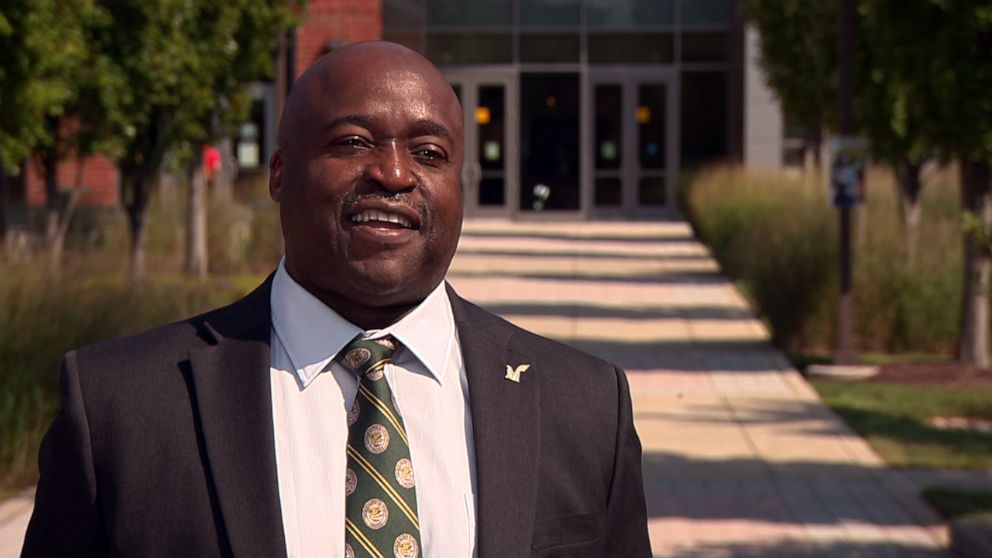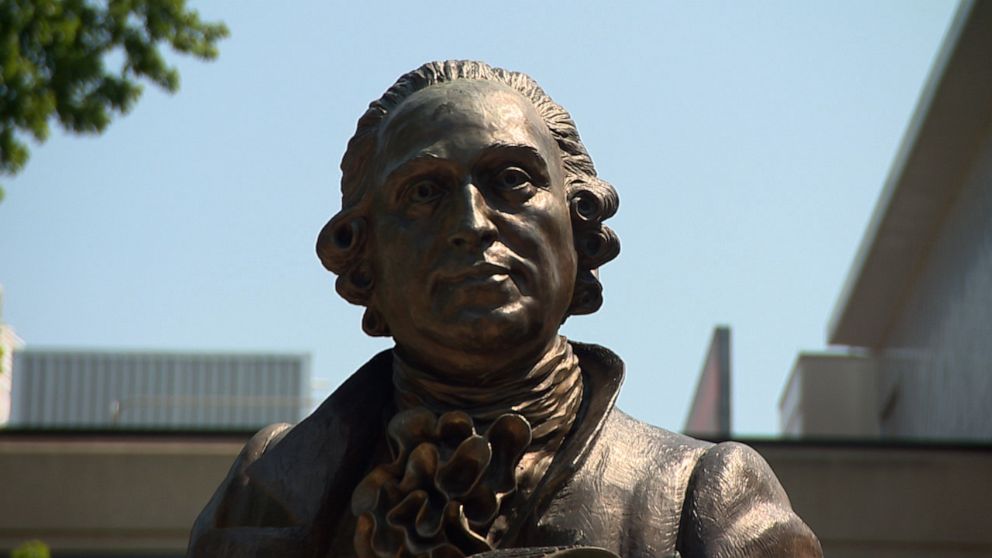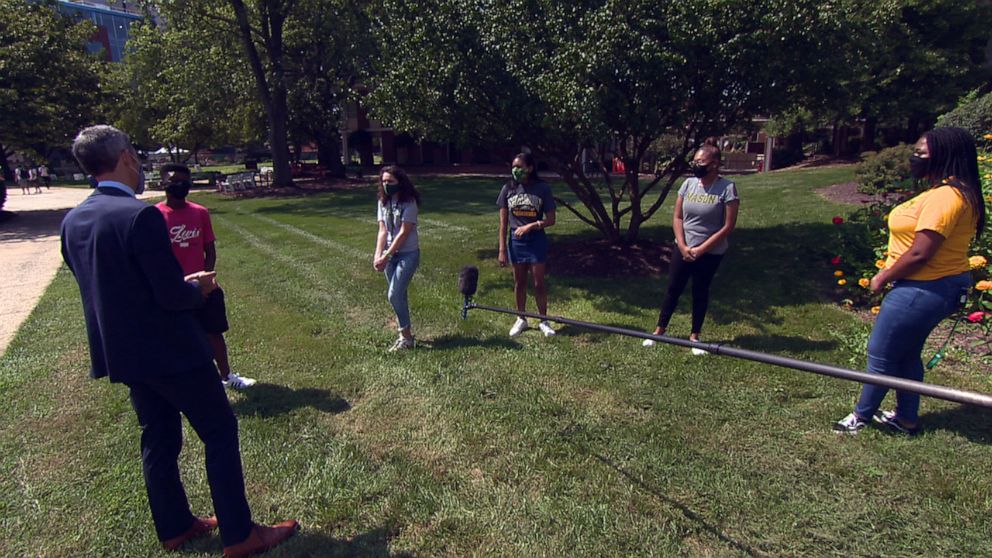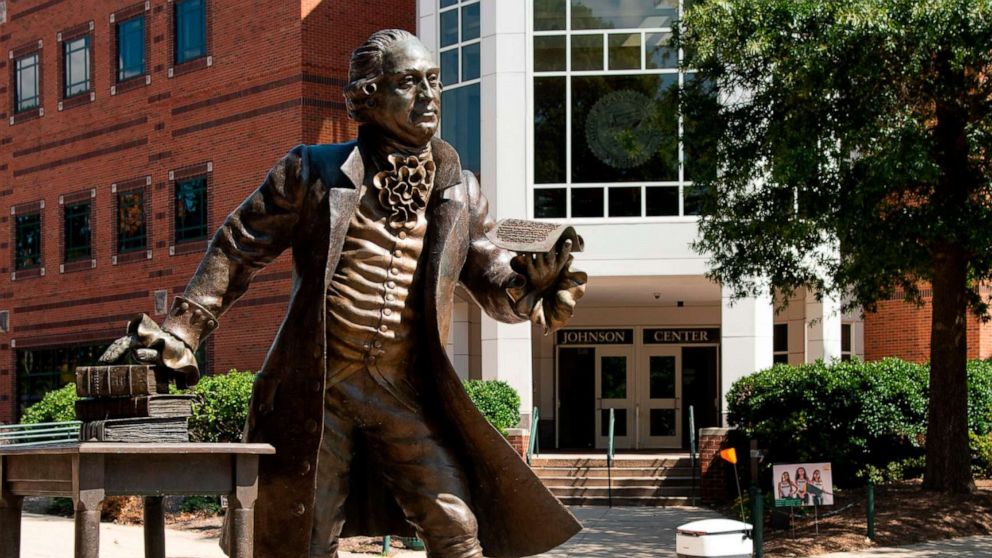George Mason University's 1st black president tackles racism, COVID-19
The largest and most diverse public university in Virginia is overhauling how it handles issues of race on campus.
After a summer of protests and public health crises, George Mason University in Fairfax, Virginia, is piloting an aggressive anti-racism agenda that school officials hope will become a model for the nation.
"We want to be a national leader in the discussion of how campuses should be structured, how they should operate and how they should perform relative to race," said Dr. Gregory Washington, the university's first African American president.
As the coronavirus pandemic, recession and protests against racism collided this spring, Washington assumed his history-making role at the university. While 34% of college undergraduates are African American, just 8% of university presidents nationwide are Black, according to the American Council on Education.

"To be honest with you, I don't know if I would have taken the job knowing what I know now. I mean, this is a tough environment," Washington said.
One major challenge: addressing questions about the school's namesake, George Mason -- one of the nation's founding fathers who helped inspire the Bill of Rights, but who also owned 100 slaves, most of them children. Mason was one of the biggest slave owners in Virginia.
Washington says the school will keep its name and a statue of Mason's likeness.
"This is an interesting debate," he told ABC News Live. "This is a part of the American story, and we can't separate George Mason from this institution any easier than we can separate many of the founding fathers from the country, because a significant percentage of them owned slaves."

Students -- back on campus for modified in-person learning and dorm living during the pandemic -- are applauding the decision and an effort to construct a memorial to the enslaved people Mason owned.
"I really love the monument that is being built because it provides the full picture of the story," said Natalia Kanos, a junior at the school. "We just had the statue [of Mason] and didn't really know the history behind everything, but now [the memorial is] being built and you can look at the history and look through all of that and see the statue."
In 2017, a team of undergraduate researchers uncovered new details about the lives of Mason's slaves, prompting a reckoning on campus.
"I don't think by him owning slaves that has made its way to the campus. We're all diverse. We're all one," said Logan Rice, a junior. "I just want to see more actions just taken on campus toward Black Lives Matter."

Washington has created an anti-racism task force to investigate lingering racial bias at the school and root it out. The board will actively monitor police activity; review salary and promotion policies; add counselors for racial healing; and require every course syllabus to include a statement against racism.
"In a time of national unrest related to racial inequities, you know, my message would be one of, look, great things are still possible," said Washington.
The call for optimism comes as the nation grapples with yet another police shooting of an unarmed black man -- Jacob Blake in Wisconsin -- an incident that has unsettled students at George Mason hundreds of miles away.
"It's sad to see people that look like me, like dying on the streets because of something they can't control," said Shelby Adams, a junior at the school. "But I think at the moment what we need in the country right now is unity, because at the moment it seems like we're very divided."
As thousands marched for justice, equality and unity Friday on the National Mall, students back on campus made clear their voices aren't going away.
"I feel like the protests are a good thing. They're showing that we want to fight for what we believe is right," said Rice. "And it shouldn't take for African American, male or female, to be killed, for us to protest for what we know is right."




